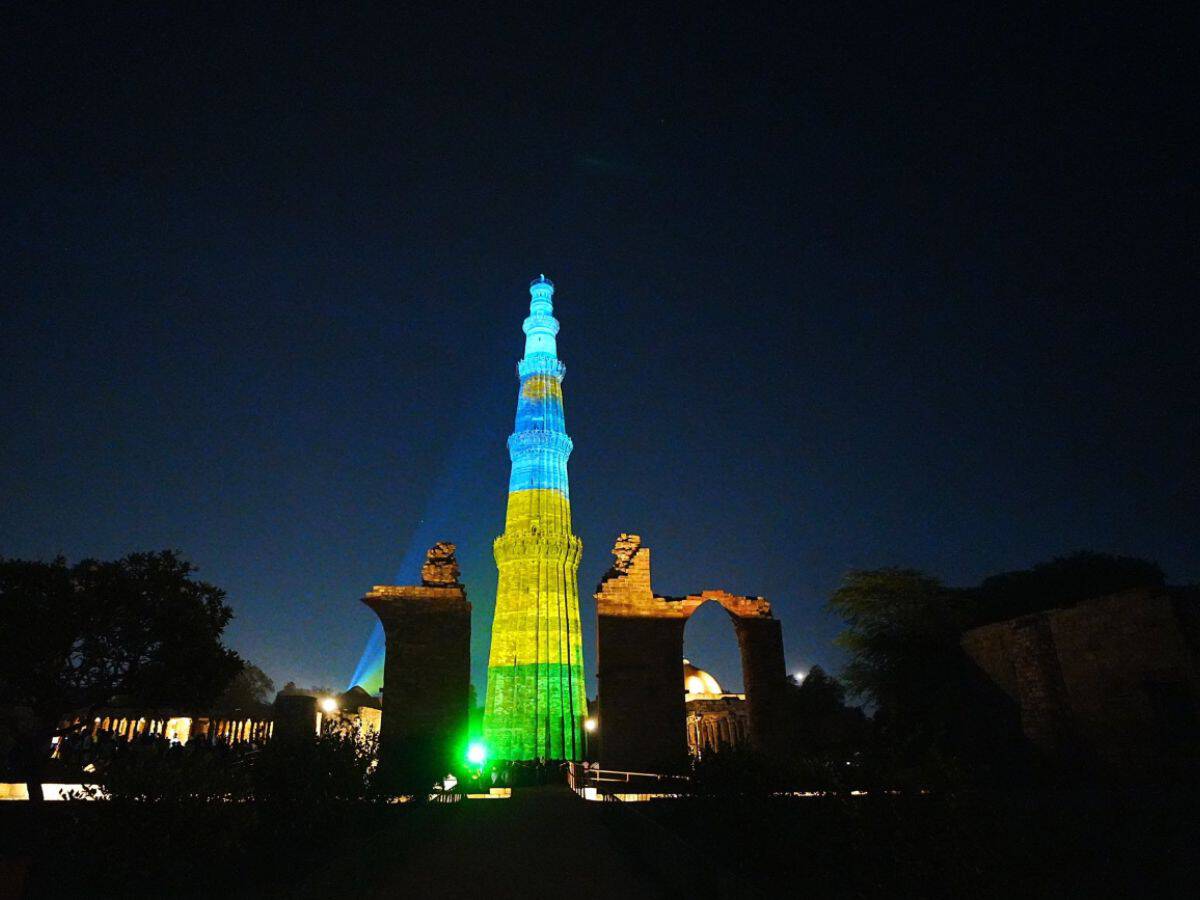
New Delhi: Expressing solidarity with the people of Rwanda, India lit up the Qutub Minar on Sunday, April 8, to mark the 30th anniversary of the 1994 Rwandan genocide.
The minaret of the UNESCO heritage site in south Delhi was illuminated in the colors of the Rwandan flag.
“In solidarity with the people of Rwanda, India lit up the Qutub Minar today, marking the UN International Day of Reflection on the 1994 genocide against the Tutsi in Rwanda. Secy (ER) Dammu Ravi represented India at the 30th commemoration of the genocide today in Kigali,” Randhir Jaiswal, the Ministry of External Affairs (MEA spokesperson), said in a post on X on Sunday.
In the late-night post, he also shared a photograph of the illuminated Qutub Minar and one of Secretary (Economic Relations) Ravi laying a wreath in Kigali, the Rwandan capital.
The MEA had on Saturday said that Ravi, during his visit to Rwanda, would represent the government of India in an event marking “the 30th commemoration of the 1994 Rwanda genocide (Kwibuka 30)” on April 7.
During a visit to Rwanda in February 2017, the then-vice-president Hamid Ansari paid tributes to the victims at the Kigali Genocide Memorial.
Ansari had described the memorial, the final resting place for more than 250,000 people massacred during the genocide, as a “testament to an indomitable national spirit”.
The site commemorates the mass slaughter of the Tutsi people in Rwanda by members of the Hutu majority government in 1994.
The memorial was built in 2004 by a collective effort of the government, the people of Kigali, and a non-profit trust.
“A visit to this memorial is a moving experience. On behalf of the people of India and my own, I salute the resilience and courage demonstrated by the Rwandan people to put behind the hatred and move ahead on the path of reconciliation and inclusion. It is a testament to an indomitable national spirit,” Ansari wrote in his message in the visitors’ book.
Ansari had laid a wreath at the site and also took a tour of the memorial, which, among other exhibits, displays the skulls, bones, and belongings of several victims.
The Kigali Genocide Memorial website charts the story behind its inception and the larger purpose of building a better society.
“Survivors, their experience, and testimony are at the heart of the Kigali Genocide Memorial, which also hosts the Genocide Archive of Rwanda. Many survivors speak of it as their home,” it says.
“Honouring the memory of those murdered had to begin with listening to those who survived but couldn’t stop there. It needs to become a learning starting point which could make communities resilient against identity-based violence in the future,” it further says.
